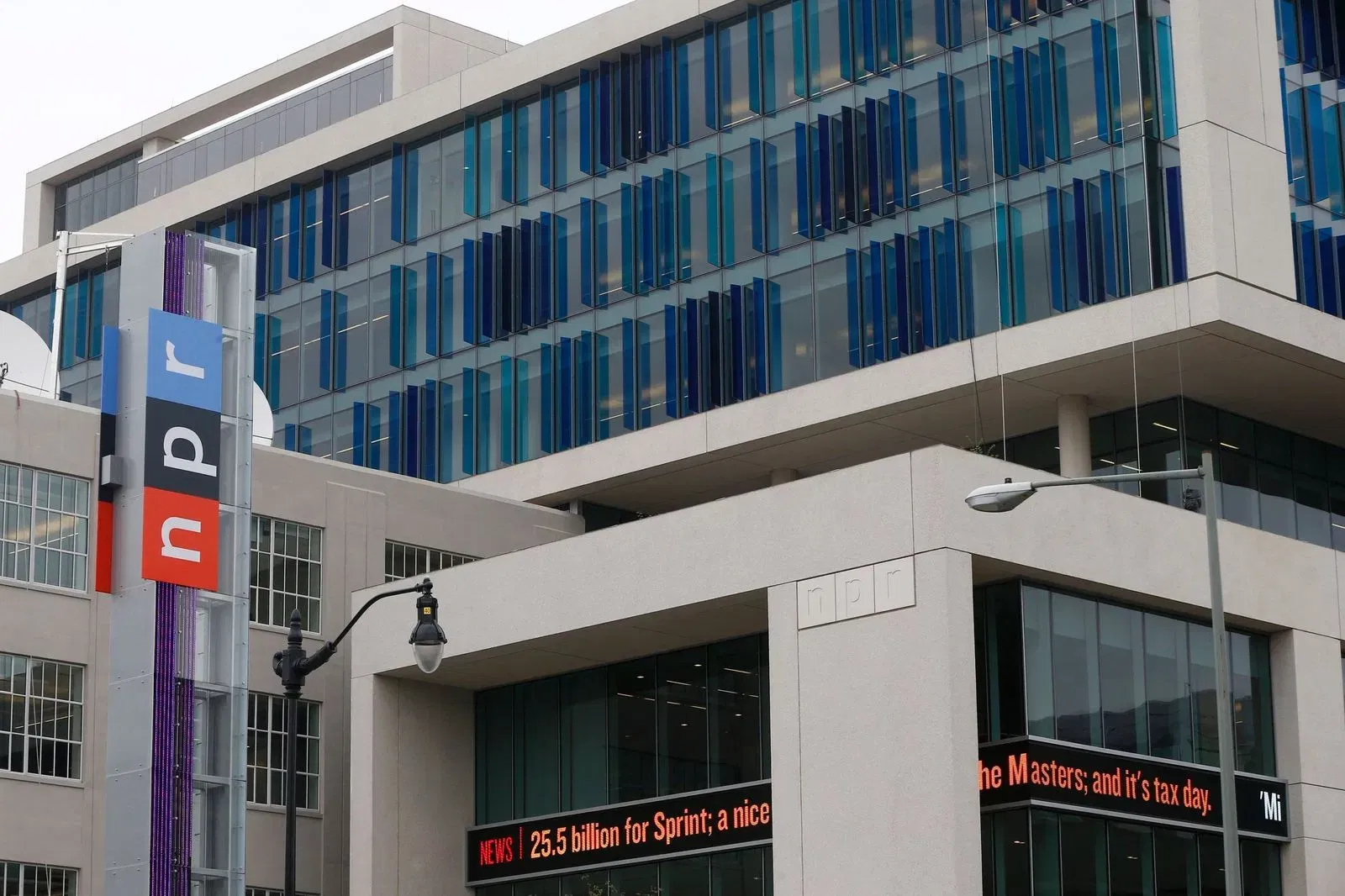WASHINGTON (TNND) — The Senate passed $9 billion in federal spending cuts to the Public Broadcasting Service, National Public Radio and foreign aid programs overnight, moving forward on one of President Donald Trump’s top priorities proposed by the Department of Government Efficiency (DOGE).
The final vote was 51-48, with Republican Senators Susan Collins and Lisa Murkowski joining Democrats to vote against it. The legislation will now move to the House and faces a Friday deadline to be signed into law for the proposed cuts to stand.
The GOP recissions package clawed back $9 billion in congressionally approved spending and targets around $8 billion for foreign assistance programs, including USAID, and roughly $1 billion in cuts from the Corporation for Public Broadcasting, which helps fund NPR and PBS.

An entrance to the Arizona PBS offices in the Walter Cronkite School of Journalism and Mass Communication in Phoenix is seen Friday, May 2, 2025. (AP Photo/Katie Oyan)
Senate Majority Leader John Thune, R-S.D., said Republicans were using the president’s rescissions request to target wasteful spending.
“I appreciate all the work the administration has done in identifying wasteful spending,” he said on the floor. “And now it’s time for the Senate to do its part to cut some of that waste out of the budget. It’s a small but important step toward fiscal sanity that we all should be able to agree is long overdue.”
Democrats say the bill upends a legislative process that typically requires lawmakers from both parties to work together to fund the nation’s priorities. Triggered by the official recissions request from the White House, the legislation only needs a simple majority vote instead of the 60 votes usually required to break a filibuster, meaning Republicans can use their 53-47 majority to pass it along party lines.
In a speech on the Senate floor Tuesday, Murkowski said the stations are “not just your news — it is your tsunami alert, it is your landslide alert, it is your volcano alert.”
The situation is “a reminder that when we hear people rant about how public broadcasting is nothing more than this radical, liberal effort to pollute people’s minds, I think they need to look at what some of the basic services are to communities,” Murkowski said.
Collins attempted to negotiate a last-minute change to the package that would have reduced the cuts by about $2.5 billion and restored some of the public broadcasting and global health dollars, but she abandoned the effort after she didn’t have enough backing from her Republican colleagues in the Senate and the House.
_____
Editor’s note: The Associated Press contributed to this article.


















